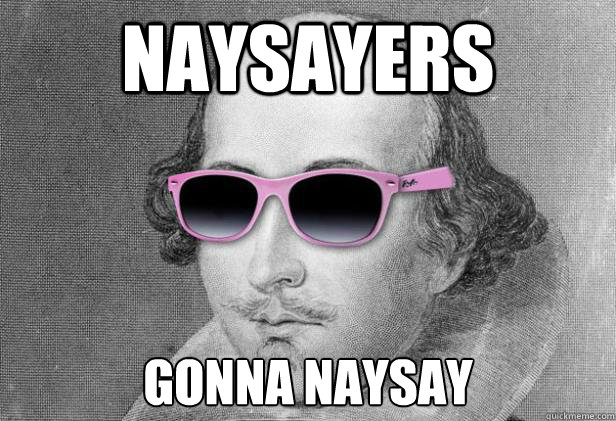If we probe into what Jim O’Rourke over at Florida State University calls the late 16th century “micro-politics” of Tudor England, we arrive at the interplay of Elizabethan prejudice, humor and self-hatred. O’Rourke is engaged in a debate with other scholars and his goal is to re-frame The Merchant of Venice as an anti-racist work that was written in response to the high profile case of Francis Bacon and Rodrigo Lopez in 1594, but his efforts are most helpful in localizing the themes of xenophobia and homophobia in the immediate historical moment of the play.
O’Rourke explains how latent xenophobic and homophobic forces are at work in the immediate historical moment of The Merchant of Venice. He outlines the process by which these forces are activated as devices to execute and justify the violent state-sponsored persecution and intimidation of the “other” (O’Rourke 378). One could just be unlawfully different, for example, homosexual and Jewish identities were illegal in England during the 1590s. However, London has never been able to rid herself of either the Jews or the homosexuals so their activities became part of an underworld of open secrets. No one ever challenged these secrets unless you broke the law. If you did, all hell broke loose and the state then ensured that “it would have its bond” by hanging you, even if you did nothing wrong.
Rodrigo Lopez was an immigrant doctor from modern day Portugal, and he was hanged for his Jewish heritage despite converting to Christianity. Francis Bacon was assigned to gather information about this case, but that was unfortunate for everyone. Francis Bacon was gay, and the people responsible for hanging Rodrigo Lopez knew this and could potentially let it slip to Elizabeth herself. The result, a foreign born Christian was hanged because Francis Bacon did not want to come out of the closet (O’Rourke 379). O’Rourke successfully argues that this association is played out by Antonio and Shylock in The Merchant of Venice.
The logic here is that Antonio is aggressively anti-Semitic because it’s an attribute that draws attention from his own homosexual tendencies in much the same way that Bacon looked the other way once faced with anti-Semitism because his secret was compromised. Some scholars argue that Antonio accounts for the first ever portrayal of a closeted person, or a “homophobic homosexual,” and one of the first things we learn about him is how much he has mistreated Shylock (O’Rourke 278). Tudor audiences would have laughed at the sight of effeminate Italian merchants being taken to task by an angry old Jew, meanwhile the relationship between Antonio and Shylock also comments on the world of open secrets in Tudor England. By centering the humor on Antonio’s implicit homosexuality, Shakespeare may intend to reveal more about the internalized homophobia of Tudor England.
Elizabethan London was also extremely xenophobic. While anti-Semitism was deeply woven into the fabric of Tudor England, there were not many Jews around to hate so Italian merchants replaced Jewish lenders as the most hated foreign usurers (O’Rourke 276). Italians merchants and Jews were so closely related in the imagination of people in London at this time that Elizabethan xenophobia did not distinguish between the two (O’Rourke). It would have been amusing to audiences at this time to pit one against the other, maybe the way we are all dying to see Batman v Superman. The English had such disdain for Italians that Shakespeare decided that the Venetians should be referred to as “Christians” instead.
Antonio’s history of violent anti-Semitism and internalized homophobia complicates the image of him as a good Christian, and one wonders if Shakespeare intended to complicate Elizabethan society in a similar way.

